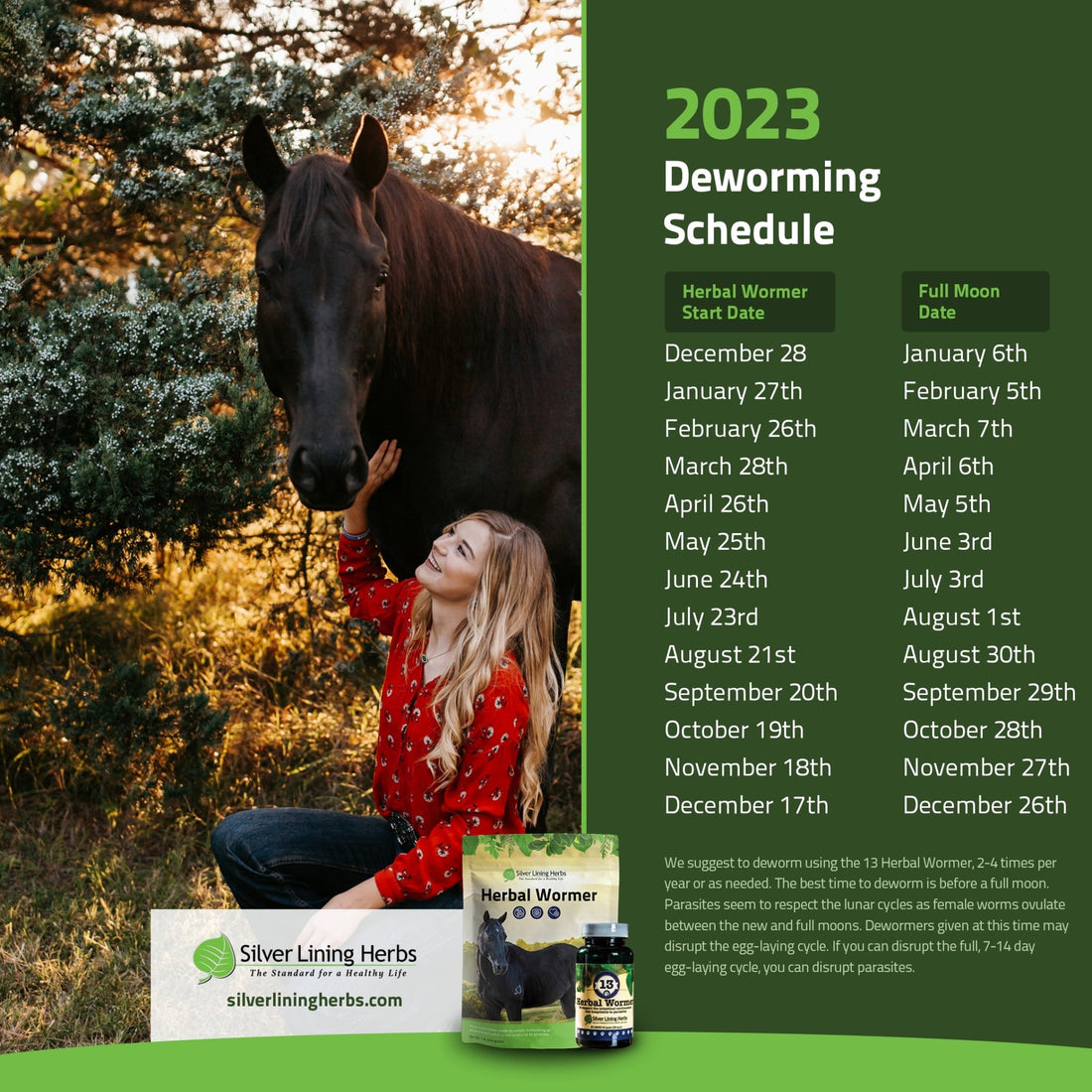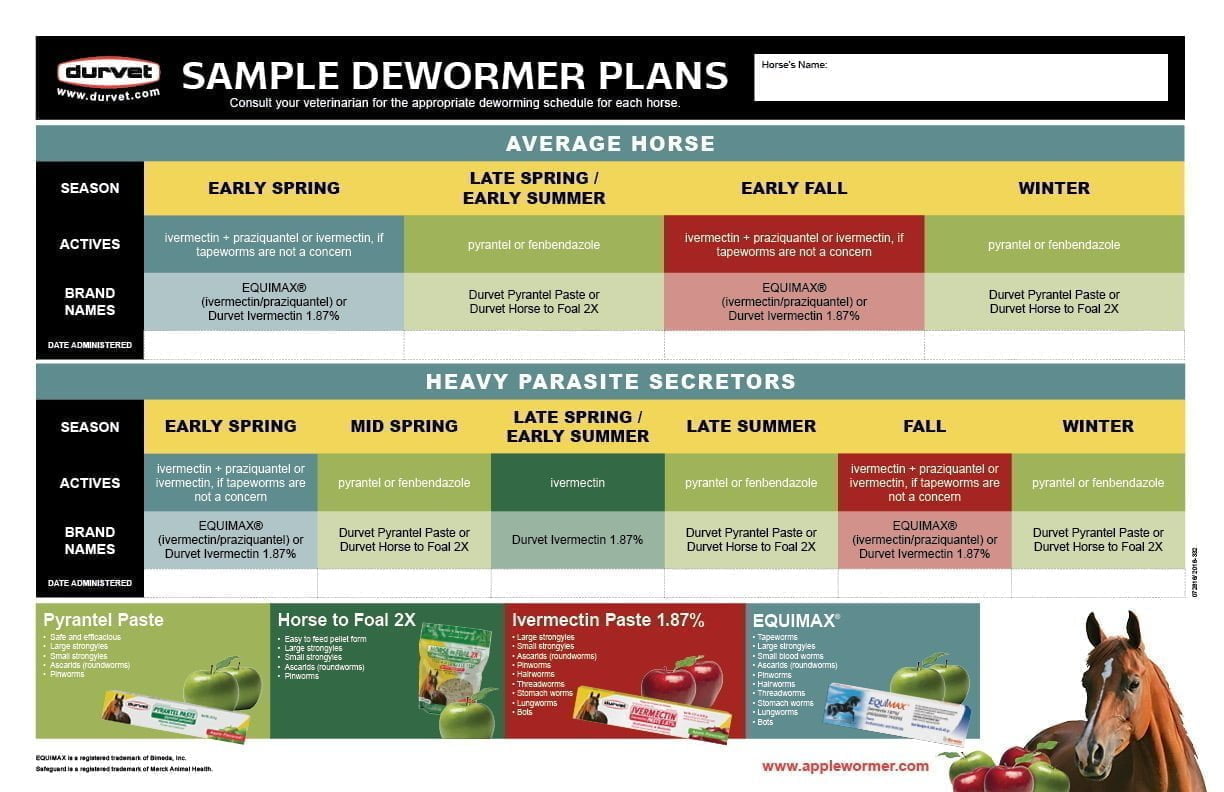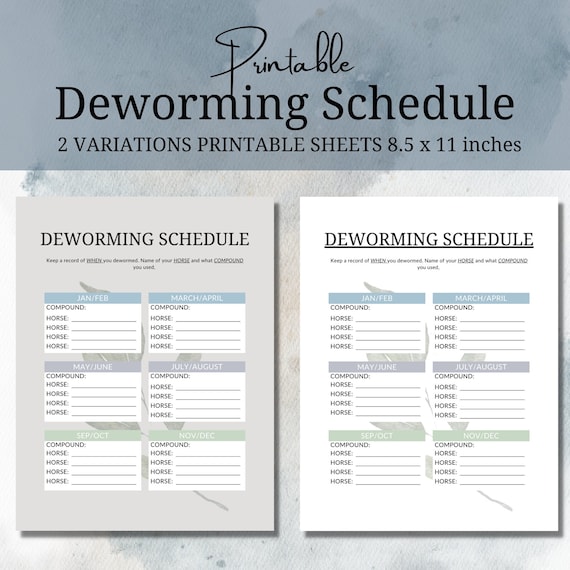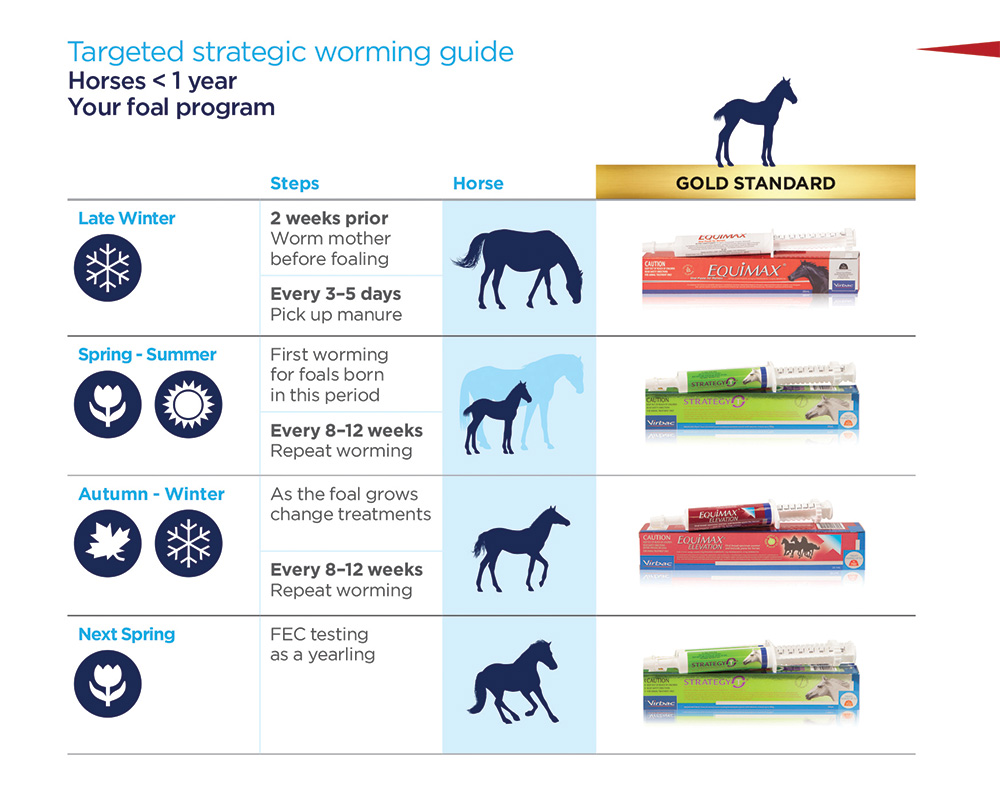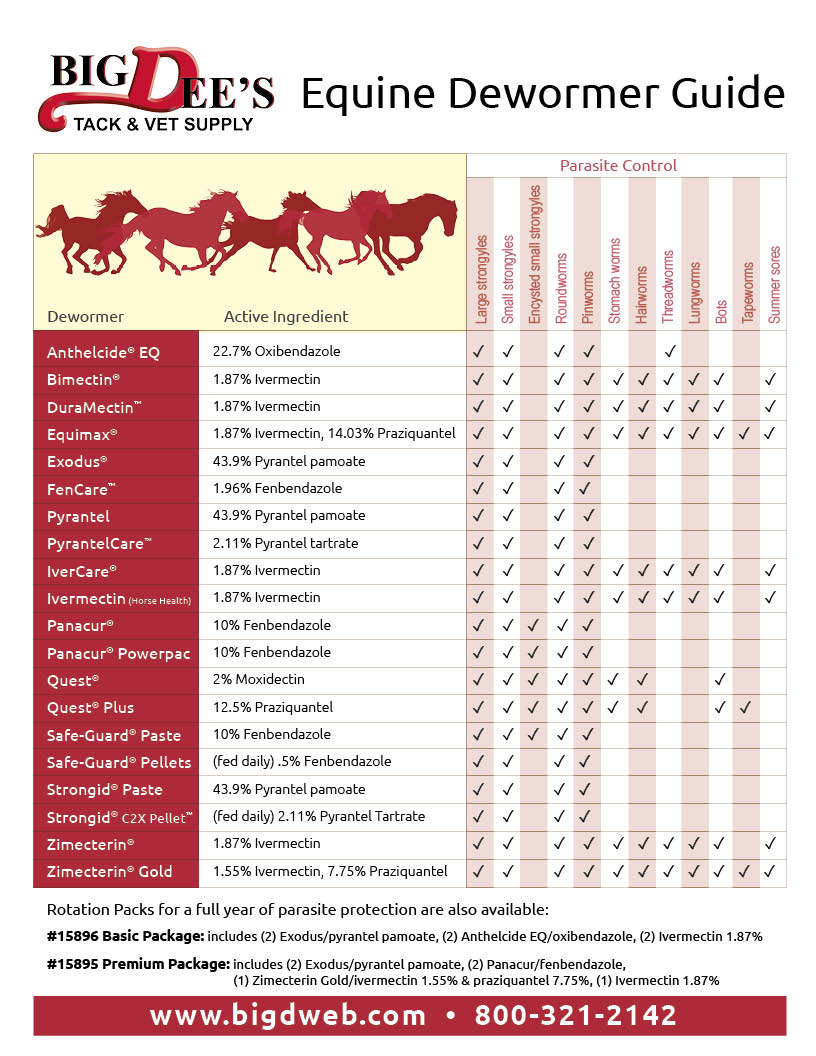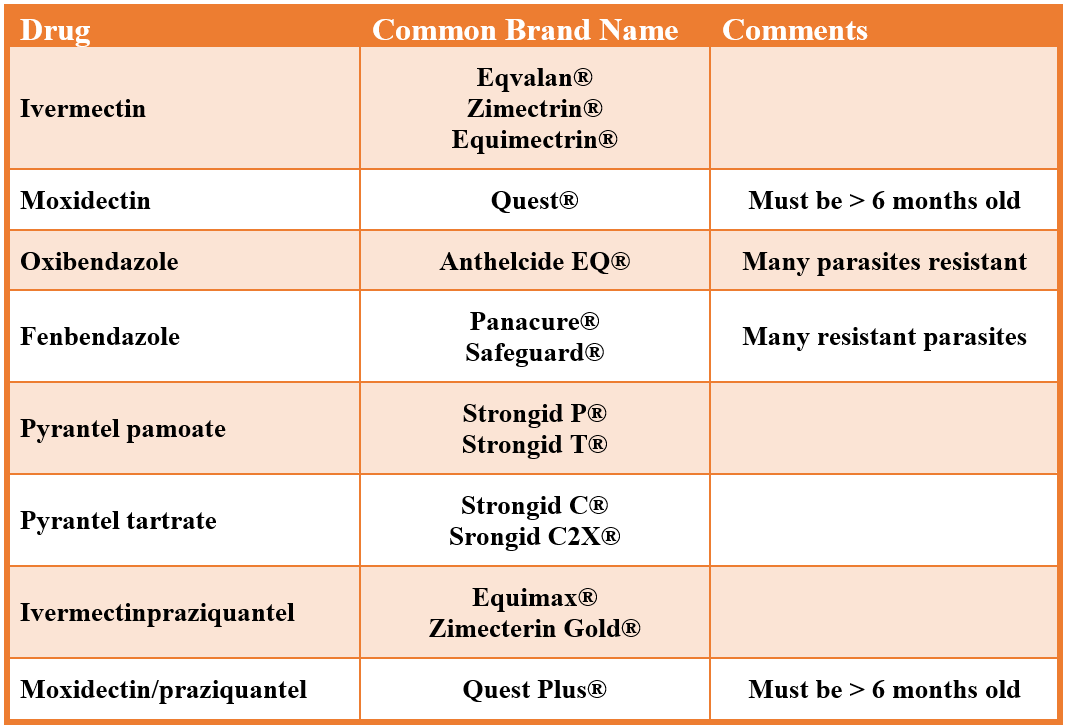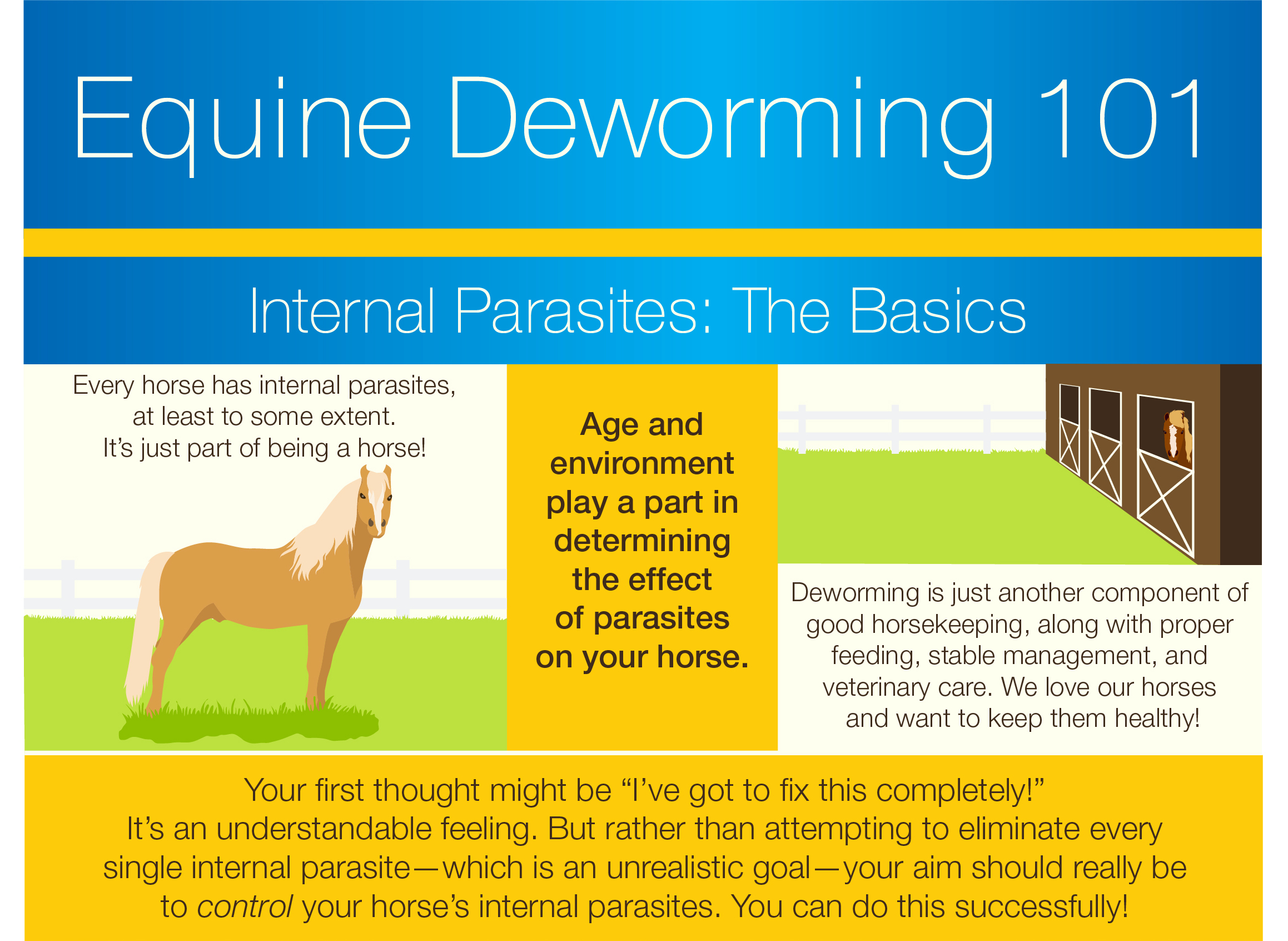Web for example, it details different deworming schedules for pregnant mares, foals, and standard adult horses. This is to determine which deworming schedule suits your horse. Web learn how to best schedule your horse’s deworming, covering equine parasite resistance and recommendations on how and when to deworm. Web this equine worming schedule makes it easy to keep track of when your horse was wormed and what your horse was wormed with. Please refer to a veterinarian for any questions or concerns you may have when starting a wormer schedule or enhancing your current regime.
Web types of worms seen in horses. Web the best way to determine the deworming schedule for your horse is to involve your veterinarian and to perform fecal egg counts (fec) to determine: Web the american association of equine practitioners (aaep) recommendations for deworming horses have changed substantially over the years, with the current emphasis on strategic targeting. Low shedders (<200 epg (eggs per gram of manure) fecal egg count performed prior to deworming in spring (ideally spring and fall) spring (march). Web the best way to know your horse’s need for deworming is to provide us with a fecal sample to test.
20% of horses carry 80% of parasites. 1) dewormer efficacy in your equine operation, 2) monitor for presence of ascarids in young horses, and 3) identify low, medium or high strongyle egg shedders among Web a sample strategic deworming schedule follows for an adult horse which is not pregnant: It details how frequently different dewormers should be used so that you can create your own schedule, depending on what type of horse you have, and when you’re beginning your schedule. This is to determine which deworming schedule suits your horse.
Web this equine worming schedule makes it easy to keep track of when your horse was wormed and what your horse was wormed with. Web craig recommended deworming horses in the fall (september, october, or november) with a dewormer containing praziquantel or a double dose of pyrantel. Web to determine the best horse deworming schedule you need to know which parasites your horse needs to be treated for and whether it’s a high, medium, or low shedder. 1) dewormer efficacy in your equine operation, 2) monitor for presence of ascarids in young horses, and 3) identify low, medium or high strongyle egg shedders among adult horses. Today, the most clinically relevant species include small strongyles, roundworms, and tapeworms. Web the best way to determine the deworming schedule for your horse is to involve your veterinarian and to perform fecal egg counts to determine: The best way to determine the deworming schedule for your horse is to involve your veterinarian. Our guide has three categories for general horse worming schedules: Low shedders, moderate shedders, and high shedders. It is easy to read with ample space to mark down important dates and. Web overuse of equine deworming products has led to the development of parasite resistance. This article is for informational use only. Generally, foals should receive their first deworming treatment between 2 and 3 months of age. Web learn how to best schedule your horse’s deworming, covering equine parasite resistance and recommendations on how and when to deworm. 1) dewormer efficacy in your equine operation, 2) monitor for presence of ascarids in young horses, and 3) identify low, medium or high strongyle egg shedders among
Web Types Of Worms Seen In Horses.
Web the best way to determine the deworming schedule for your horse is to involve your veterinarian and to perform fecal egg counts (fec) to determine: The best way to determine the deworming schedule for your horse is to involve your veterinarian. Web horse dewormer faqs, answered by an equine veterinarian. Get your free printable worming schedule here.
This Article Is For Informational Use Only.
Today, the most clinically relevant species include small strongyles, roundworms, and tapeworms. Web recommended horse deworming rotation schedules for foals and adult high, moderate and low shedders per the fecal worming tests. Web equine deworming guide. Web for example, it details different deworming schedules for pregnant mares, foals, and standard adult horses.
Our Guide Has Three Categories For General Horse Worming Schedules:
Learn how an effective horse deworming schedule can make the biggest difference for horse health. Web craig recommended deworming horses in the fall (september, october, or november) with a dewormer containing praziquantel or a double dose of pyrantel. Low shedders, moderate shedders, and high shedders. We recommend using the results of an early spring fecal egg count to determine the best deworming schedule for each individual horse.
Web It Is Important To Follow A Horse Worming Chart And Work With A Veterinarian To Devise An Appropriate Deworming Schedule.
1) dewormer efficacy in your equine operation, 2) monitor for presence of ascarids in young horses, and 3) identify low, medium or high strongyle egg shedders among adult horses. Please refer to a veterinarian for any questions or concerns you may have when starting a wormer schedule or enhancing your current regime. Web the best way to determine the deworming schedule for your horse is to involve your veterinarian and to perform fecal egg counts (fec) to determine the propensity of individual horses to carry high, medium or low worm burdens. Web overuse of equine deworming products has led to the development of parasite resistance.
